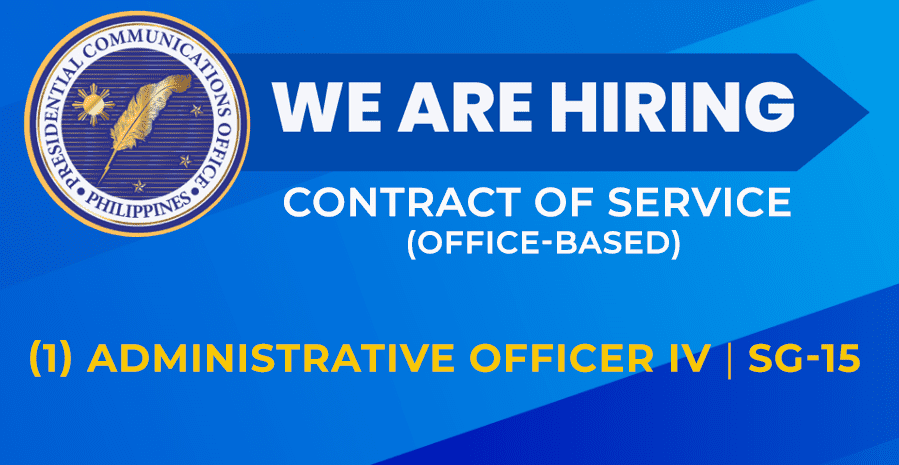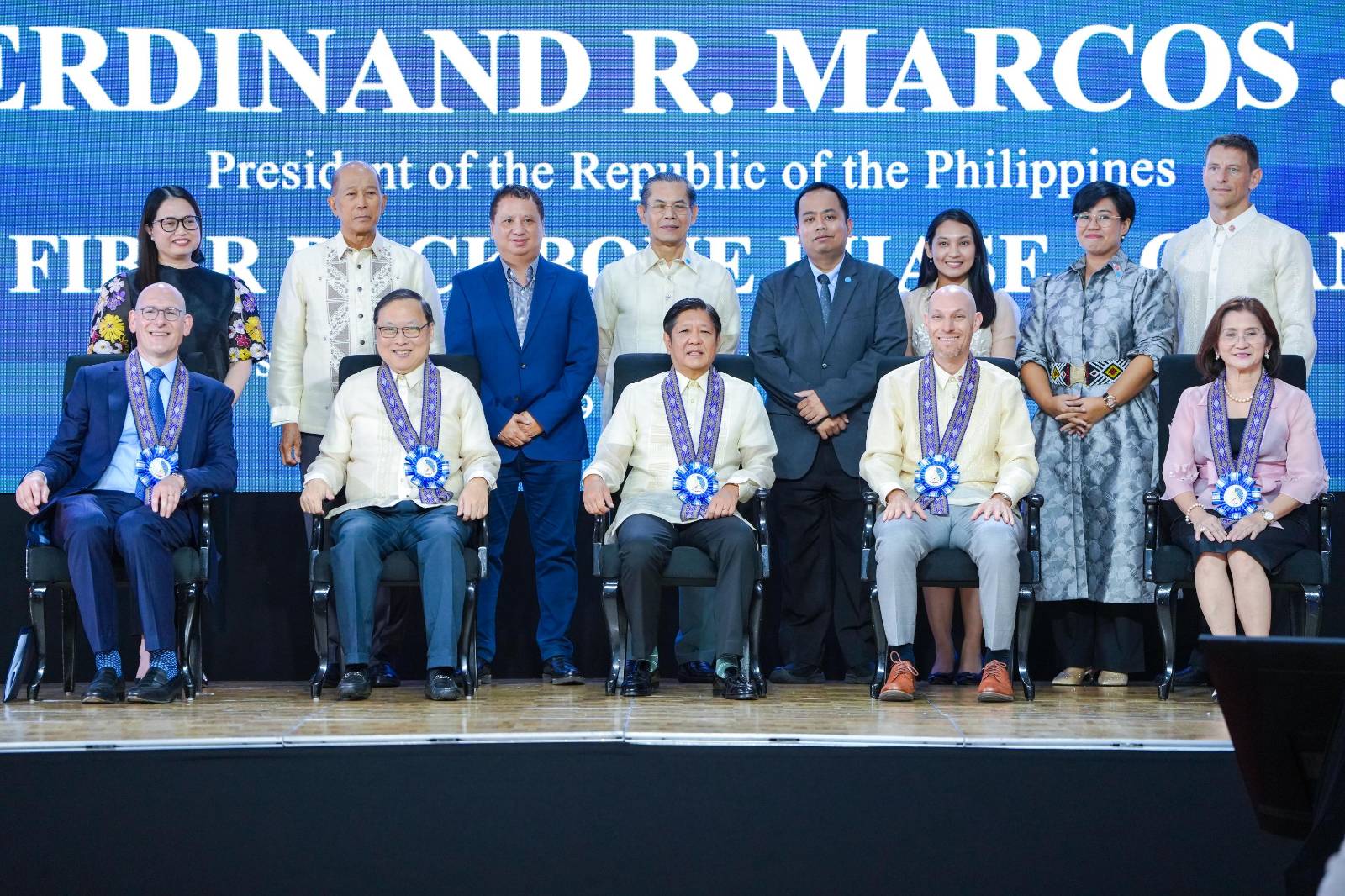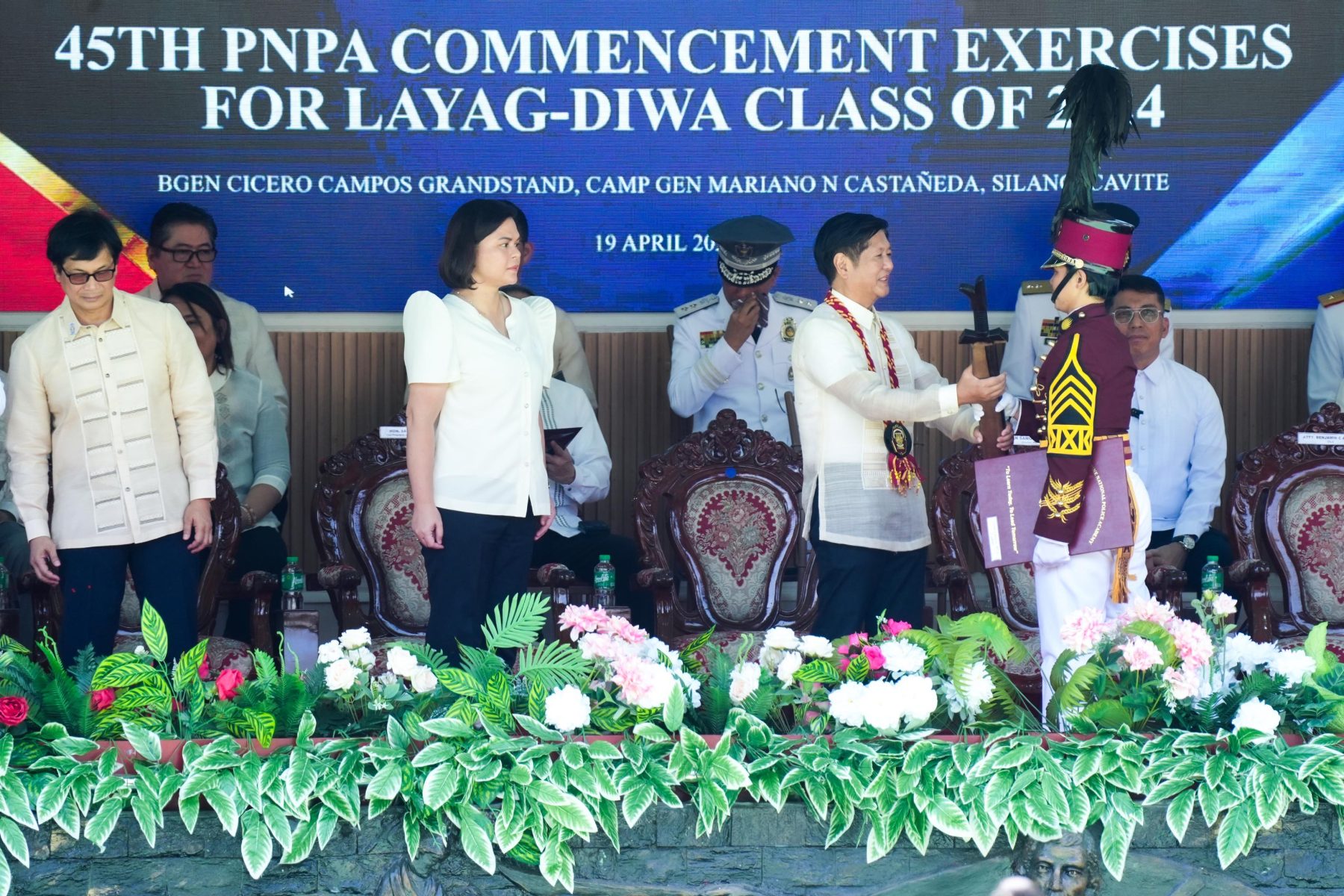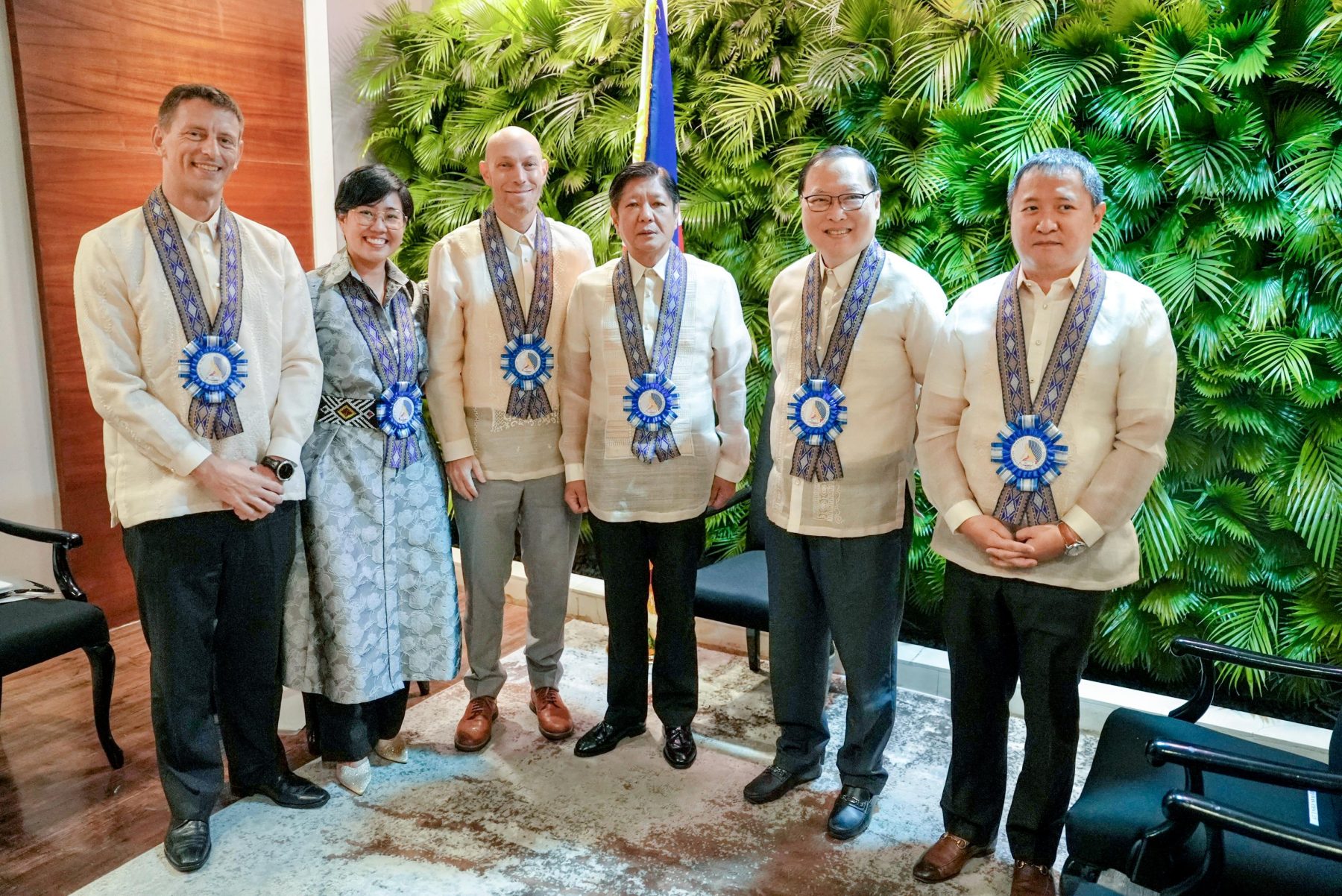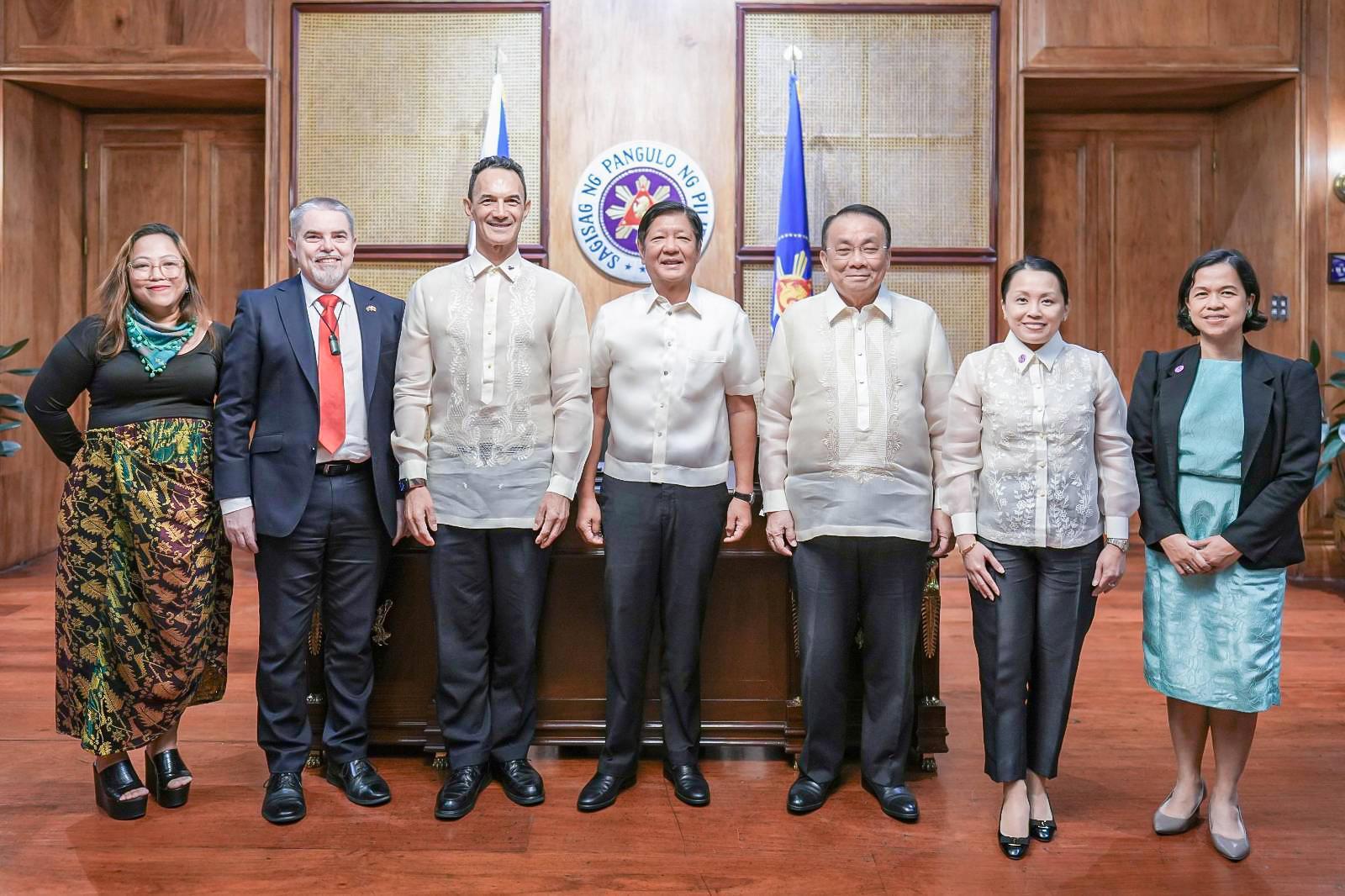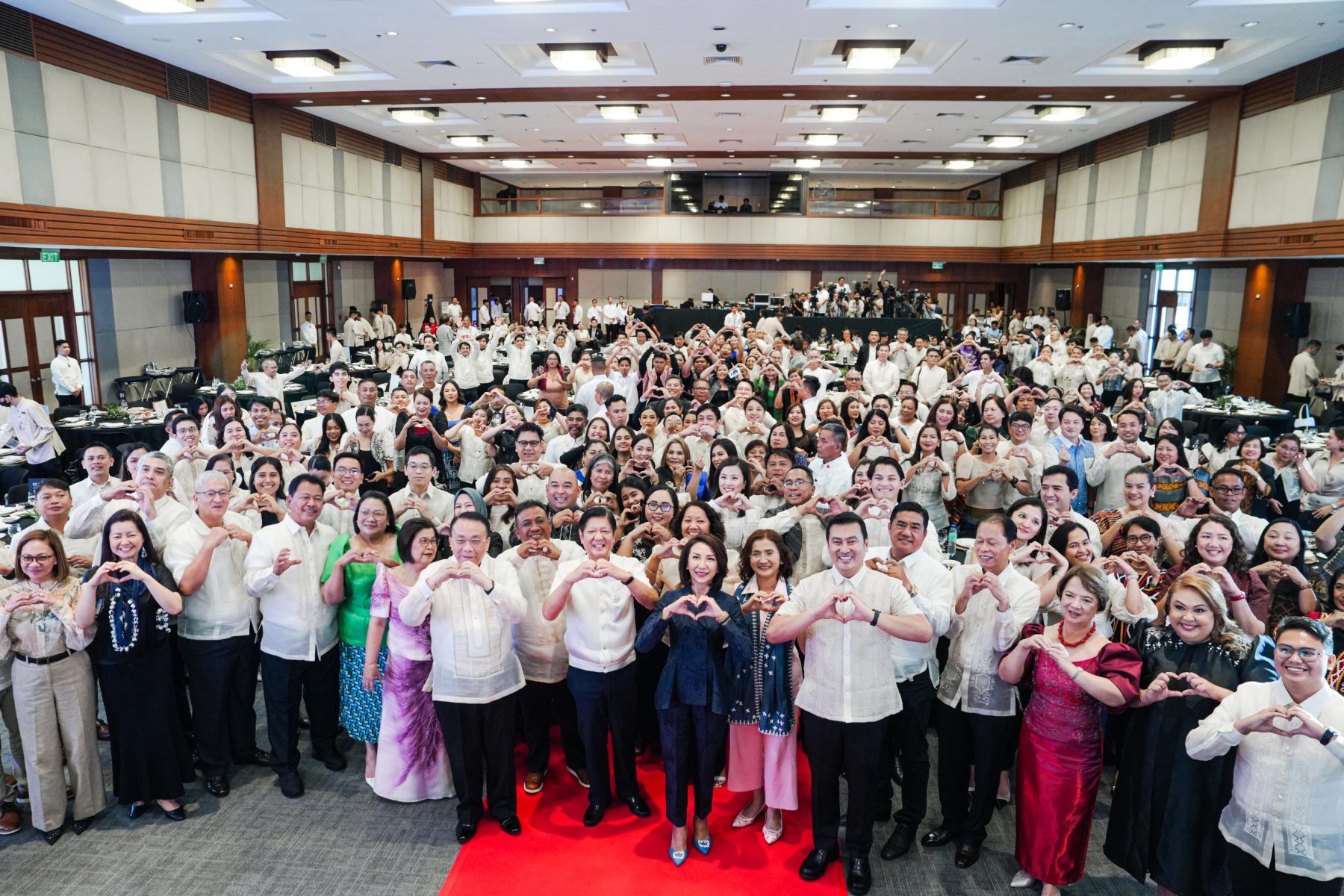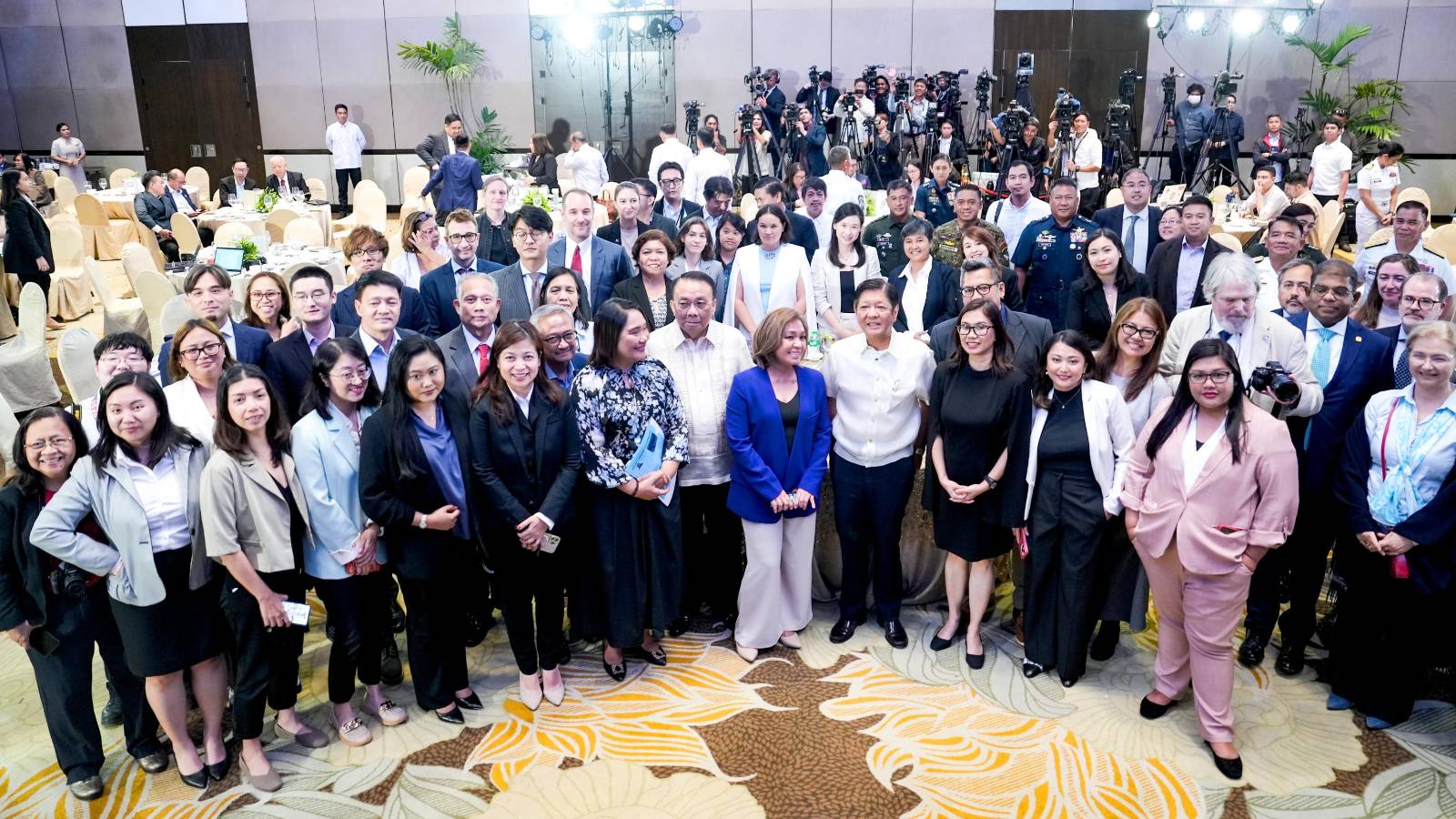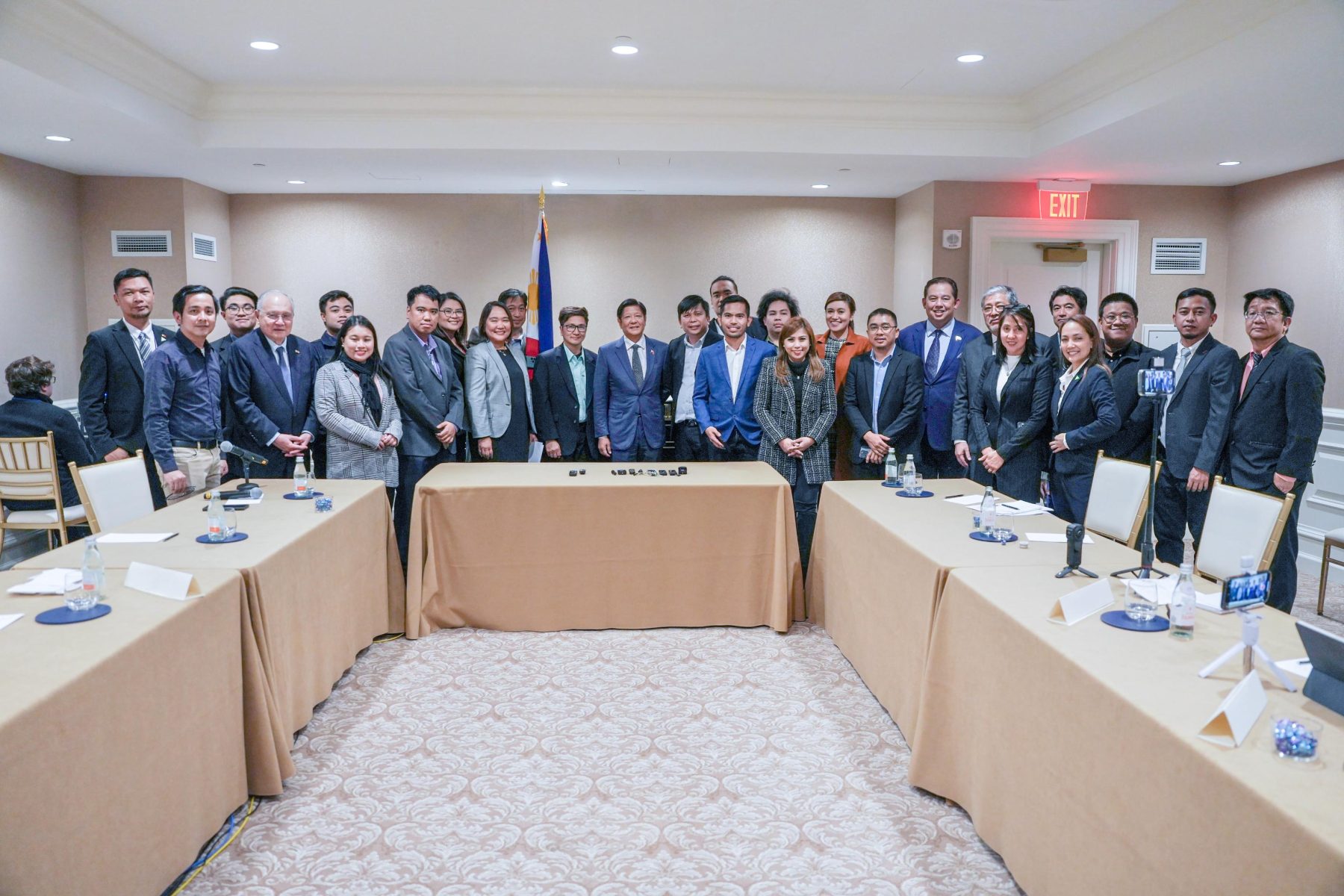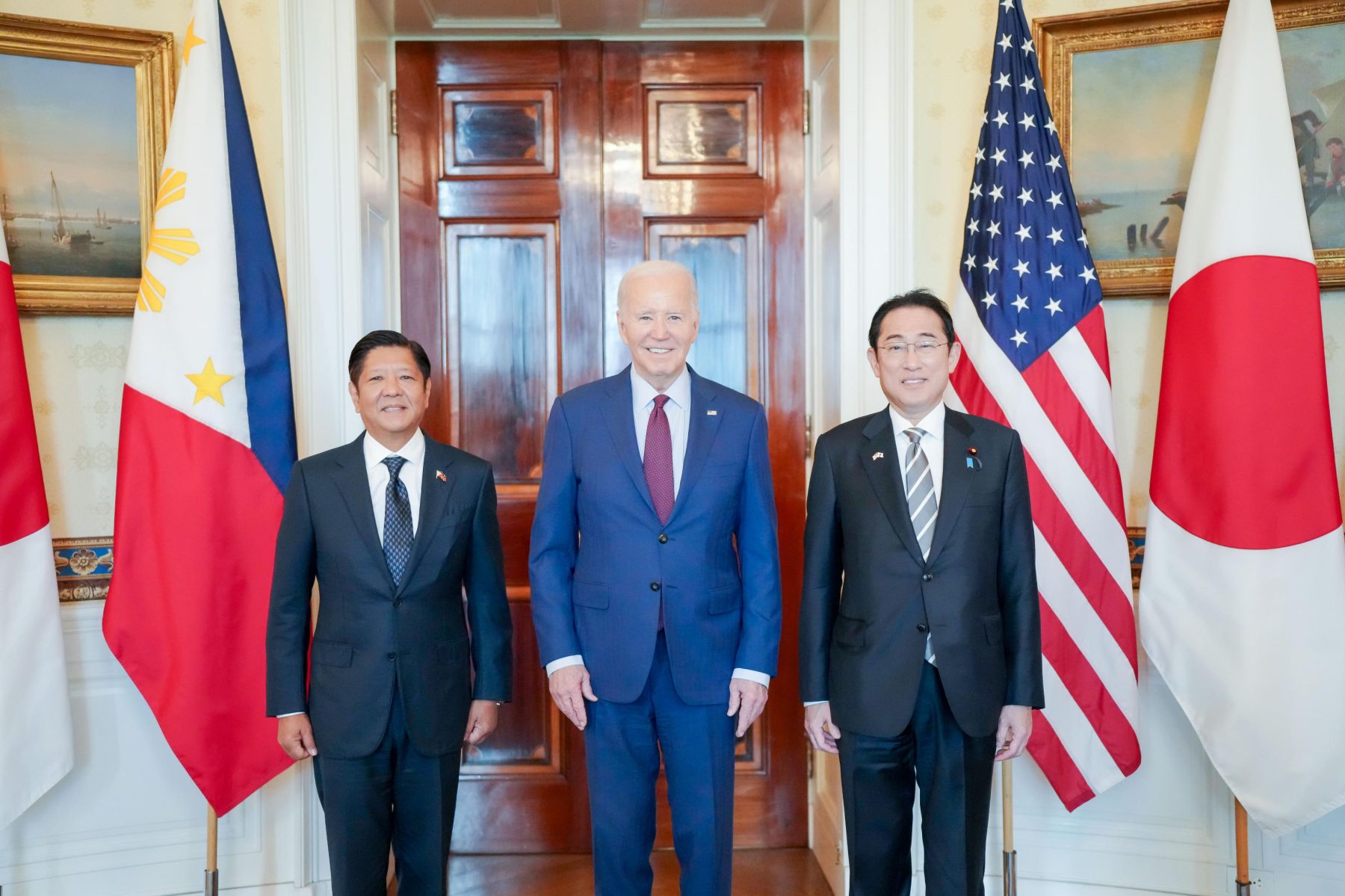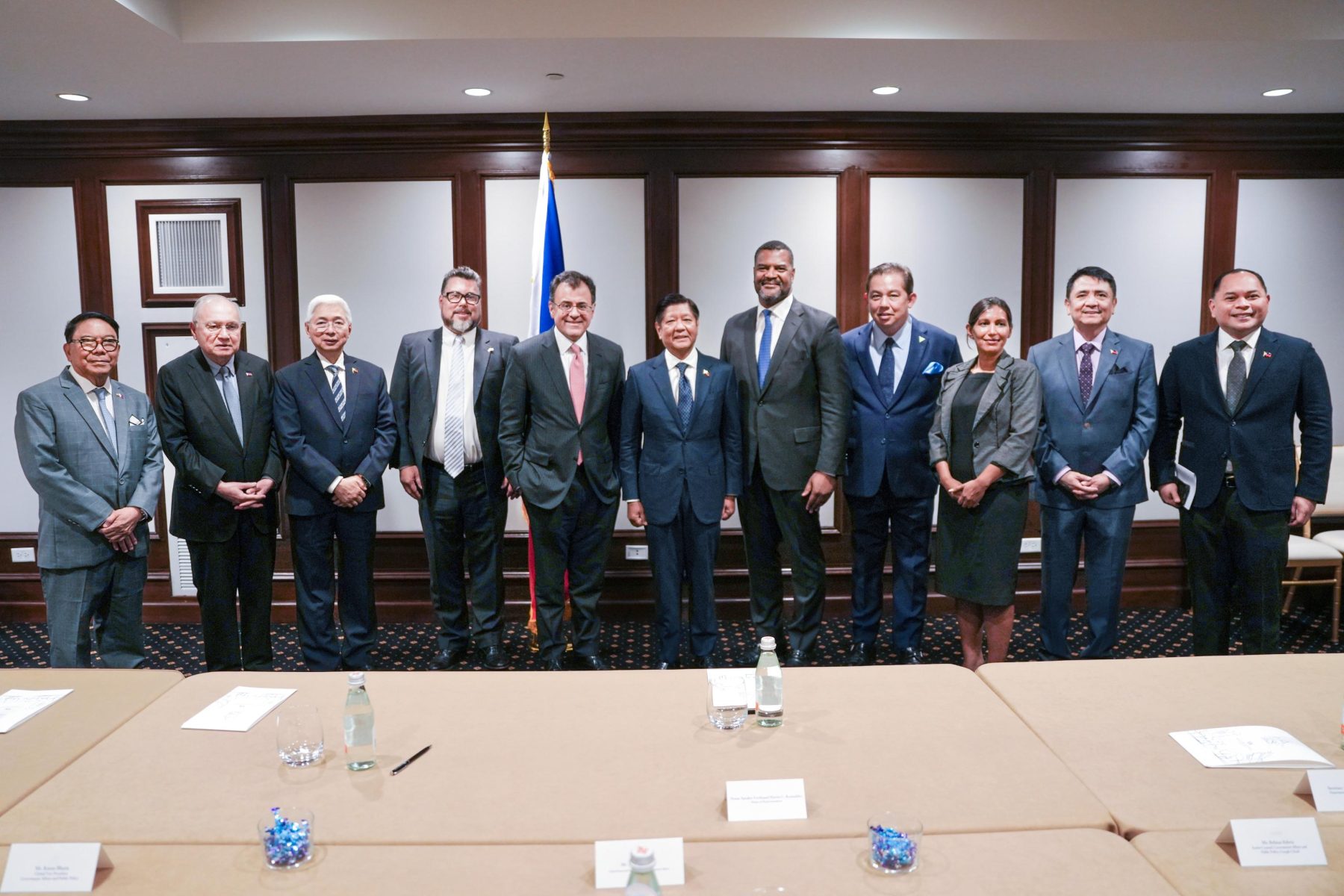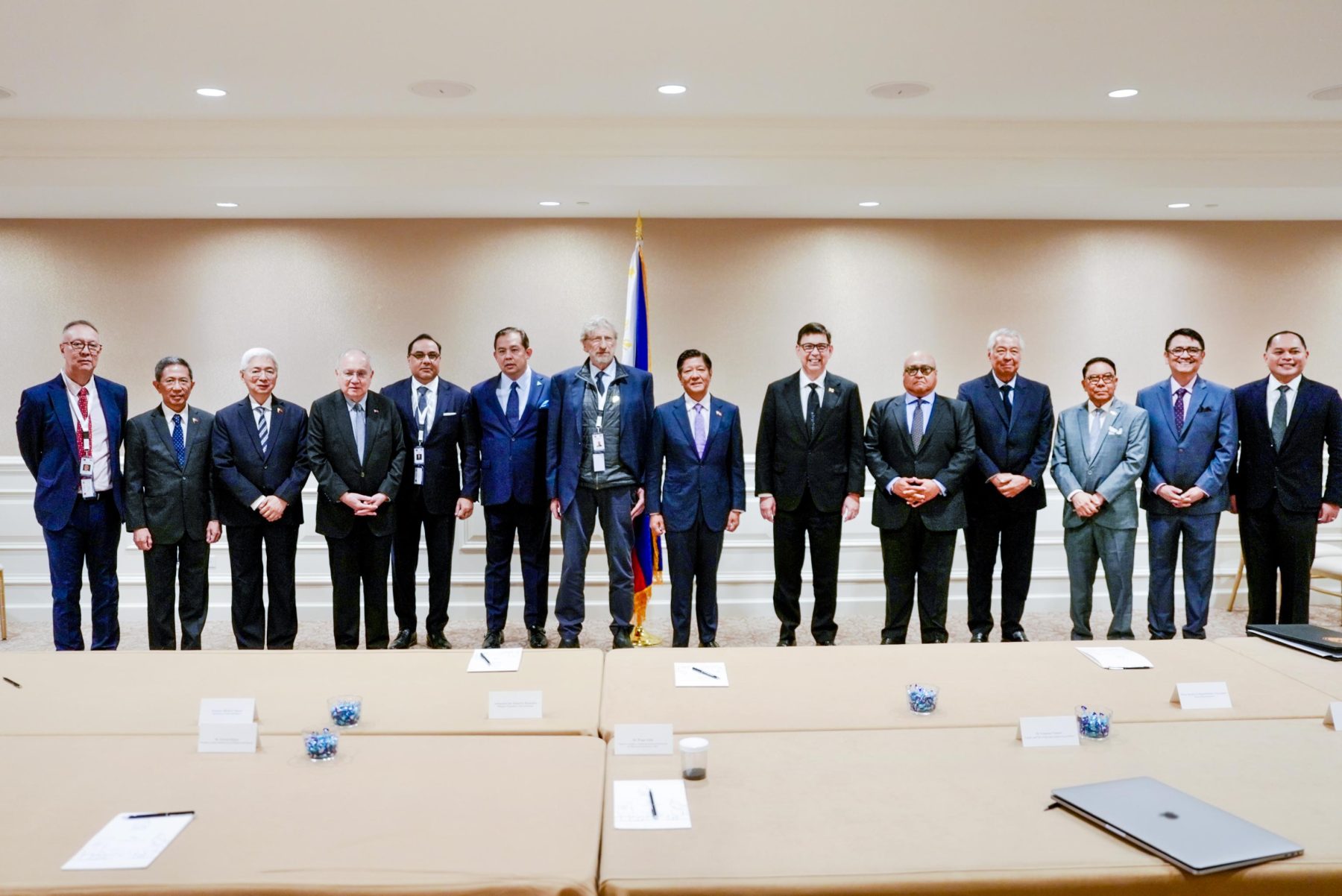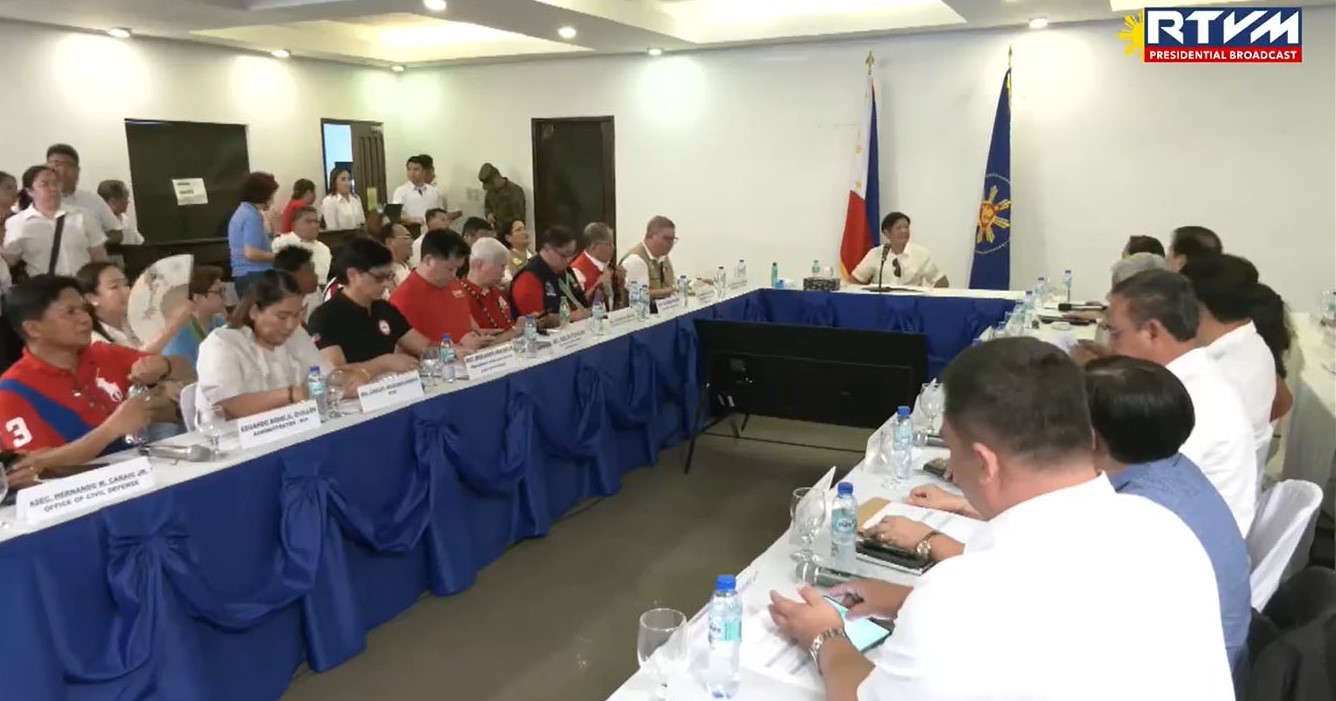September 07, 2015 – News Releases
 |
| 07 September 2015 |
APEC NEWS RELEASES
|
|
|
| Palace official allays fears on Ebola virus |
| Communication Secretary Herminio Coloma, Jr. on Monday assured the public that the Ebola virus found in monkeys by local health authorities is not a threat to human health.
The Department of Health (DOH) confirmed on Saturday that the virus, which has infected some monkeys in an undisclosed facility in the country, is the Ebola Reston Virus (ERV). “Ayon sa Department of Health, ang uri ng Ebola na nakita sa bansa ay hindi kahalintulad sa strain na kumalat sa Africa,” Secretary Coloma said during a press briefing. “Ang klase ng Ebolang ito, ang Ebola Reston, ay dati nang nakita sa bansa at naidokumento ng DOH na hindi nakakapagdulot ng anumang sakit sa tao,” the Palace official explained. Coloma said the inter-agency Committee on Zoonosis, which was formed in 2011 by virtue of President Benigno S. Aquino III’s Administrative Order No. 10, is working on the Ebola virus case. “Sa kasalukuyan, ang Philippine Inter-Agency Committee on Zoonosis na kinabibilangan ng DOH, Department of Agriculture, at ng Department of Environment and Natural Resources na nilikha noong 2011 sa pamamagitan ng Administrative Order No. 10 ng Pangulong Aquino ay nagtutulong-tulong sa pagpapatupad ng mga programa at istratehiya upang pigilan, kontrolin, sugpuin ang mga tinaguriang zoonotic diseases o ang mga sakit na naililipat mula sa mga hayop tungo sa tao at vice versa,” he further said. The DOH on Saturday confirmed positive cases of ERV virus among monkeys in a facility that the DOH did not disclose. According to Health Secretary Janette Garin, the ERV may be transmitted to humans, without resulting in illness. The DOH report said, “The threat to human health is likely to be low or none for healthy adults. In order to ensure the safety of the staff in the said facility, blood samples were collected from all employees and were sent to the Research Institute for Tropical Medicine for ERV antibodies using ELISA or Enzyme Immunosorbent assay. The results yielded negative for ERV.” While it does not cause any human illness, the DOH said it will continue to monitor the health status of the staff currently employed in the said facility. “Maraming klase ng Ebola. Meron Ebola na grabe ang epekto sa hayop ngunit hindi naapektuhan ang tao. This is a possible case of Ebola Reston. Ito ang pinakamabait na Ebola Virus sa tao,” Secretary Garin said. She also called on the public to remain calm and be vigilant. “We call on the public not to panic as wrong information may lead to more harm than help in the community. Vigilance is still needed. Let us be precautious, and adhere to the reminders given by the DOH. This is not something new and was present in the Philippines before. Allow us to emphasize that the present situation is limited to monkeys. Ang importante ito ay nakita, nalaman, at hinahanap ang pinanggalingan upang mapigilan ang pagkalat,” Garin added. PND (jm) |
|
|
| Swiss Ambassador pays farewell call on President Aquino |
| Outgoing Swiss Ambassador to the Philippines Ivo Sieber paid a farewell call on President Beningo S. Aquino III at the Music Room of Malacañang Palace on Monday.
He was accompanied by Swiss Embassy Deputy Head of Mission Raoul Imbach. Also present were the Department of Foreign Affairs’ Assistant Secretary Ma. Cleofe Natividad and Director Josephine Reynante. Sieber is married to Filipina, Gracita Tolentino-Sieber, with whom he has two daughters. President Aquino accepted the credentials of Ambassador Sieber on July 27, 2010. PND (ag) |
|
|
| Palace defends Metro Manila Development Authority Chairman Tolentino from those seeking his resignation |
| The Palace on Monday defended Metropolitan Manila Development Authority (MMDA) Chairman Francis Tolentino from people calling for his resignation.
“Patuloy ang tiwala at kumpiyansa ni Pangulong Aquino kay MMDA Chairman Tolentino sa kanyang pagganap ng tungkulin,” Communication Secretary Herminio Coloma, Jr. told reporters during the media briefing in Malacañang when asked to comment on an online petition for Tolentino to resign for reportedly shifting his focus from his work to his campaign for a seat in the Senate in next year’s elections. “Sa nakalipas na limang taon, ipinakita ni Chairman Tolentino ang isang hands-on, ‘can do’ management style ng agarang pagtugon sa pangangailangan ng mga mamamayan bunsod ng bagyo at pagbaha at paghahanda sa matitinding kalamidad tulad ng kagaganap na ‘shake drill’ para sa maaaring epekto ng malakas na paglindol sa lugar ng West Valley Fault Line,” Secretary Coloma said. He also noted that Tolentino’s efforts have contributed to the orderly visit of Pope Francis last January, and that he has been tasked to help prepare for the Asia-Pacific Economic Cooperation (APEC) Economic Leaders’ Meeting in Manila this November. “Ang pagpunta ni Chairman Tolentino sa ibang lalawigan ay bahagi ng kanyang official functions upang ipaliwanag ang kanyang nalalaman at karanasan sa disaster preparedness bilang taga-pangulo ng NCR (National Capital Region) Disaster Risk Reduction and Management Council,” Coloma clarified. Asked if the President transferred the management of the traffic along Epifanio de los Santos Avenue (EDSA) from the MMDA to the Highway Patrol Group because he no longer trusts Tolentino, Coloma pointed out that it was Tolentino who proposed that the police patrol group take the lead in handling the traffic along EDSA. On why Tolentino donated P20 million worth of traffic lights to Legazpi, Albay, Coloma said this is part of his official duty. “Siya po ay government official pa rin at ginagamit niya ‘yung lehitimong resources ng kanyang tanggapan para sa isang lehitimong official function,” said Coloma. PND (ag) |
|
|
| APEC member economies form networks to address threats posed by pandemics |
| (CEBU CITY, Cebu) Members of the Asia-Pacific Economic Cooperation (APEC) are strengthening their cooperation to effectively fight pandemics that could impact heavily on their economies if such threats go out of control.
“We are actually forming networks. A network is important and I think they are trying to look at measures on how they can improve the surveillance of diseases,” Chairperson of the APEC 2015 Senior Officials’ Meeting (SOM), Laura del Rosario, said during a press conference here Sunday when asked about health issues. Member economies, she said, are studying how they could improve response and recovery systems for public health emergencies, even without pandemics spreading across the Asia-Pacific region. “They also try to address non-communicable diseases, like disabilities, including mental illness,” she said, adding that the Philippines has tried to call attention to these issues. The fast-paced growth and rapid urbanization create certain maladjustments among the population that some people become psychologically incapacitated, she explained. Diseases and illnesses affect the productivity of a country, del Rosario pointed out, citing studies that show health issues affect a big percentage of production in the region. “Definitely, a person who is sick is not productive and at the same time, the illness adds to the burden of the family, so it is a double whammy,” she said. “For instance, if your father gets sick, you lose an income-earner and at the same time, you have to take care of him. So, it is a double loss for a family.” Del Rosario further said that ongoing talks in the APEC try to encourage collaboration in research and innovation in health systems, as well as boost public-private partnership tie-ups to address health-related issues. She observed that there is strong public-private cooperation among APEC member economies because they know that not every government could handle their problems alone and that even rich countries have to rely on the private sector. The private sector, she said, does not undertake projects for charity, because it earns as it tries to help the government face the challenges in the public health sector. Citing an example, she said that when the government plans to build more hospitals but lacks resources, private investors step in. “(The government) encourages the establishment of private hospitals, so this is where public-private partnership comes in,” she said. PND (as) |
|
|
| APEC Executive: Boosting trade in services in Asia Pacific is key to inclusive growth |
| (CEBU CITY, Cebu) Member economies of the Asia-Pacific Economic Cooperation (APEC) are working to ease barriers to trade in services that have the potential to contribute to inclusive growth in the region.
Executive Director of the APEC Secretariat, Dr. Allan Bollard, noted that boosting trade in services is imperative, especially to the Philippines, being one of the leaders in this area. “We are trying to work out how regulation could be making it harder to trade in services, how policy should be designed for that; and what are the best practices right around the APEC region for trade in services, how to encourage supply chains to develop with services and we are getting databases on how that is working right around the region,” he said during a media briefing here Saturday. Bollard underscored the importance of growing trade in services in the region amid slowing trade growth following the global financial crisis. “The APEC region is very advanced on trade in goods, but it is actually not very advanced in trade in services. And that clearly is the big push for the future. So this year, we have had a lot of discussions on that and that is continuing at meetings now,” he said. To promote inclusive growth, Bollard said the APEC is also addressing the trade constraints being faced by micro, small and medium enterprises (MSMEs). “The broad approach from APEC is to try and allow micro and small business to access the driving forces of the international economy,” he said, referring to access to free trade areas, appropriate regulation, electronic commerce in terms of getting goods and services across borders, and finance, among others. PNA (ldv) |
|
|
| Philippines pushing for structural reforms at APEC meeting |
| (CEBU CITY, Cebu) The Philippines is pushing for various structural reform initiatives aimed at promoting inclusive growth among member economies of the Asia-Pacific Economic Cooperation (APEC), including making markets more open across the region.
National Economic and Development Authority (NEDA) Director General Arsenio Balisacan said ministers and high-level officials of the APEC’s 21 member economies will decide on various structural reform efforts during the Structural Reform Ministerial Meeting (SRMM) on Monday to Tuesday (September 7 to 8) here, which they will endorse to APEC leaders this November. Balisacan, this year’s APEC SRMM chair, said these initiatives have been identified by APEC technical working groups and committees that discussed issues relating to structural reform. He explained that structural reform involves changing government policies and regulations so that economic transactions could be done more efficiently. “While each economy can push for its own structural reform, the APEC will benefit if structural reform is done in unison,” he said. “You can unify, harmonize rules for example that could make trade more efficient, that could make investment more efficient and that would be for the benefit of everyone,” he added. Balisacan said the Philippines is proposing a three-pillar structural reform agenda – initiatives aimed at making markets more open, transparent and predictable across the region; increasing the market participation of various sectors; and ensuring that those who are exposed to natural disasters or economic shocks would not fall into poverty. “Those three pillars are quite common, with relevance across 21 APEC member economies. If we get these pillars properly structured and pushed, we think that the APEC member countries would achieve its aspirations, which is to advance regional prosperity and (to become an) inclusive region,” he said. Balisacan further said that the Philippines has been pushing for sustained inclusive growth in recent years. “We have introduced a number of (structural) reforms to ensure that growth is rapid while it is also inclusive and sustainable,” he said, noting that such reforms include the passage of the competition law and the creation of a Competition Commission; and the launch of the Philippine Business Registry that reduces the number of days to register a business. The two-day SRMM here is the second to be held in APEC after it was held in Australia in 2008. Balisacan said the meeting hopes to develop the post-2015 agenda for the region, proposed to be named Renewed APEC Agenda on Structural Reform (RAASR). PNA (ldv) |
|
|
| Services, quality of growth are major issues for APEC member economies, says official |
| (CEBU CITY, Cebu) Member economies of the Asia-Pacific Economic Cooperation (APEC) are looking at services and quality of growth as the two major policy issues affecting the region, an APEC 2015 official has said.
Foreign Affairs Undersecretary Laura del Rosario, Chairperson of the APEC Senior Officials’ Meeting, mentioned during a press conference here Sunday that services and quality of growth are the main policy issues in the APEC discussions as delegates wrap up their meetings prior to the APEC Leaders’ Meeting in November. The issue of services is a concept that is very difficult for some people to accept or understand because there are too many forms of services, about 200 in the world, she said. Citing car manufacturing as an example, del Rosario said that during one of the presentations, it was reported that assembling a car involves 77 services, among them transport and logistics, warehousing, advertising, and maintenance service, among others. She said the Philippines is looking into the possibility that with the discussions on the opening up of services, “Filipinos might be able to capture a service that can be developed, which is uniquely part of manufacturing”. Filipinos can venture on designing, brokerage, hospitality and manufacturing, she said. “And we want to invite other services here so that we will learn from them. Even education is a service. We hope that time will come when we can allow foreign educators to teach partly in the Philippines,” she said. Del Rosario explained that the issue of services is a big agenda and it takes 10 years to achieve because there are so many kinds of services, and the APEC has to build different roadmaps for each of them. Another issue, she said, is improving the quality of growth in the region. Del Rosario also underscored the importance of building institutions, such as schools and communities. Individual and community action are very important for economies not to be caught off guard by these developments, she said. PND (as) |
|
|
| APEC working to further liberalize trade and investments in services |
| (CEBU CITY, Cebu) Structural reform ministers from the 21 Asia-Pacific Economic Cooperation (APEC) member economies are working to further liberalize trade and investments in services to generate much-needed growth and employment in the Asia-Pacific region.
“This is important at a time when APEC economies are facing an environment of slower global economic growth, slower potential growth, and relatively weak business investment,” Philippine Economic Planning Secretary Arsenio Balisacan said at the opening of the Regional Conference of Services Coalition held here on Monday. Balisacan stressed that removing regulatory barriers would open up the services sector to competition and investments. “The services sector faces unique and significant barriers that, in many cases, are regulatory in nature. If a regulation is too restrictive and prescriptive, then it will hinder innovation,” he noted. Balisacan said structural reform ministers welcome the recommendation of the APEC Business Advisory Council (ABAC) for them to address behind-the-border barriers to services that reduce competition and restrict investment options. The APEC ministers and high-level officials are meeting at the Structural Reform Ministerial Meeting (SRMM) on Monday and Tuesday (September 7 and 8) here to discuss issues relating to structural reform. Balisacan, this year’s APEC SRMM chair, said ministers also welcome the support of private sector representatives for the development of the APEC Services Cooperation Framework, which will be endorsed to the APEC leaders in November. The Philippine-led APEC Services Cooperation Framework aims to develop a long-term strategy to increase the region’s competitiveness in services trade and investment compared to trade in goods. Balisacan noted that the services sector — which includes telecommunications, e-commerce, transportation, finance and banking, engineering, construction, legal, health care and education services – is a major contributor to output and productivity growth. The sector accounts for two-thirds of the combined gross domestic product (GDP) of APEC economies and almost 71 percent of the global GDP. In the Philippines, the services sector comprises 54 percent of total employment or an estimated 21 million Filipinos, he added. PNA (ldv) |
|
|
| Business sector eyes services coalition for growth, development |
| (CEBU CITY, Cebu) The business sector on Monday proposed the formation of a services coalition that would enable various professions to enhance the growth of the service industry in the country.
In a presentation during the Asia-Pacific Economic Cooperation (APEC) Regional Conference of Services Coalition, George Barcelon of the Philippine Chamber of Commerce and Industry (PCCI) said bringing the services players together in a coalition could highlight the priorities of the industry and strengthen it in the long term. Barcelon said that given the rapid expansion of trade in services, Foreign Affairs Undersecretary Laura del Rosario, who also chairs the APEC Senior Officials’ Meeting, has expressed support for the idea and has called on the Makati Business Club and the Philippine Chamber of Commerce and Industry to co-convene the coalition. “The private sector fully supports this initiative, which is also partly the reason why I’m standing before you,” he told the APEC delegates at the Radisson Blu Hotel here. “We envision the coalition to bring together service associations and formulate strategies for the development of the service sector.” Groups supporting the coalition, he said, would have their first official meeting after the APEC conference in Cebu, having laid the initial groundwork for the effort since 2014. They have also identified roadmaps for specific service sectors, Barcelon said, citing that the Information technology – business process outsourcing (IT BPO) sector has already developed and successfully implemented its own roadmap. “The logistics sector led by the Philippine International Sea Freight Forwarders Association and the United Port Users Confederation are now in their third revision of the private sector-led Philippine logistics roadmap,” he noted. “We are positive that other service industries, such as tourism, medical, health service, construction, education are on the same path.” The Philippine services coalition is a work in progress, Barcelon pointed out, adding that they have realized the need to work closely with various service sectors to gather inputs and hopefully influence government policies. Unlike other economies, he said, the export of services rather than manufactured goods, has driven the economic growth of the Philippines in the past decade. He however stated that despite its significant contribution to the economy, the potential of the service sector has yet to be maximized. “So to leverage the potential of the sector, we encourage the government to prioritize policy reforms in infrastructure, education, cost of doing business, so that the services coalition would be organized to make the necessary reform,” he said. Last year, services recorded a 6 percent growth, accounting for 56 percent of the economy, Barcelon reported. In terms of employment, he said, the number of people employed in the services sector increased to 21.2 million as of last April. The growth of the service sector is fueled by the remittances of overseas Filipino workers (OFWs), as well as the booming IT and tourism industries. Contributions from OFWs alone account for 9 percent to 10 percent of the gross domestic product (GDP) in the past 10 years. The case of the Philippines, he said, is unique because it transitioned from agriculture to services rather than from agriculture to manufacturing as the principal engine for economic growth. “The strength of the Philippine service sector lies in (the country’s) rich human and natural resources. The Philippines’ remarkable performance in the IT BPO industry is primarily attributed to its large educated workforce, its strong English language capabilities, and high flexibility and productivity,” he pointed out. The expansion of the IT sector is supported by government fiscal incentives for foreign investors, which has led to the expansion of the real estate sector, he said. The country’s huge pool of talents, such as programmers, designers, graphic animators, musicians and performers, has penetrated the world scene, enabling Filipinos to enjoy a well-deserved international reputation, Barcelon said, adding that in tourism, the world-class tourism destinations, hospitable people, and their proficiency in English are key to the growth of the sector. The country also has highly skilled professionals — doctors, nurses, engineers, teachers, seafarers — but the lack of employment opportunities in the country has compelled them to go abroad, he noted. Barcelon estimated the number of OFWs at 2.3 million, 96 percent of whom are overseas contract workers. PND (as) |
|
|
| APEC members agree to improve disaster relief and emergency responses |
| (CEBU CITY, Cebu) Member economies of the Asia-Pacific Economic Cooperation (APEC) have agreed to improve disaster relief and emergency responses through the timely distribution of donated goods and deployment of equipment and people.
During a press briefing here on Monday, Chairperson of the 3rd Senior Officials’ Meeting (SOM) and Related Meetings, Foreign Affairs Undersecretary Laura del Rosario, said APEC members are working on how to better facilitate the movement of goods, equipment and people during disasters. Del Rosario cited as an example the Philippine Bureau of Customs (BOC), which usually checks foreign donations to determine whether these are smuggled goods or if they are taxable or not. “Therefore, just the processing at Customs could take time. But during disasters, there is an agreement that there should be a facilitation of goods. Like the medicines that should come, these need not be subjected to tax and customs duties because these will go to affected the communities that will really benefit from them,” she explained. Del Rosario said there should also be a facilitation of entry into the disaster-affected communities for equipment like cranes and helicopters that transport people and supplies, especially during an earthquake. She added that the country likewise needs to allow foreign doctors to practice in the Philippines during disasters or should there be a shortage of specialists. “We cannot be protectionist in that sense because this is an emergency situation. So in effect, we are opening up borders in times of disasters and this goes with our own government’s response, that it should be ready to take in outside help, because we all know that all economies, whenever they are afflicted, they announce their need for help,” the APEC official added. More than 70 percent of the world’s natural disasters occur in the Asia-Pacific region. PNA (ldv) |
|
|


